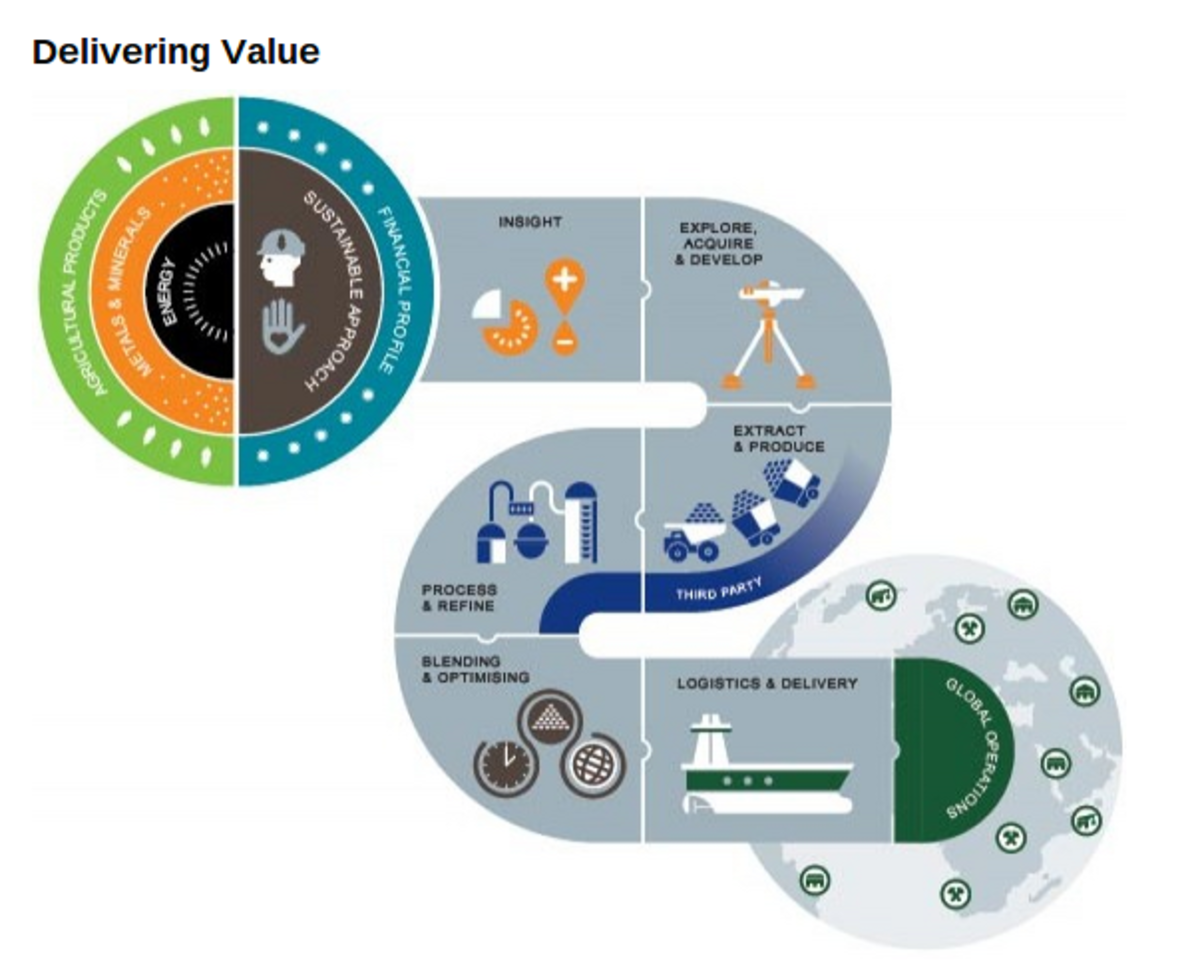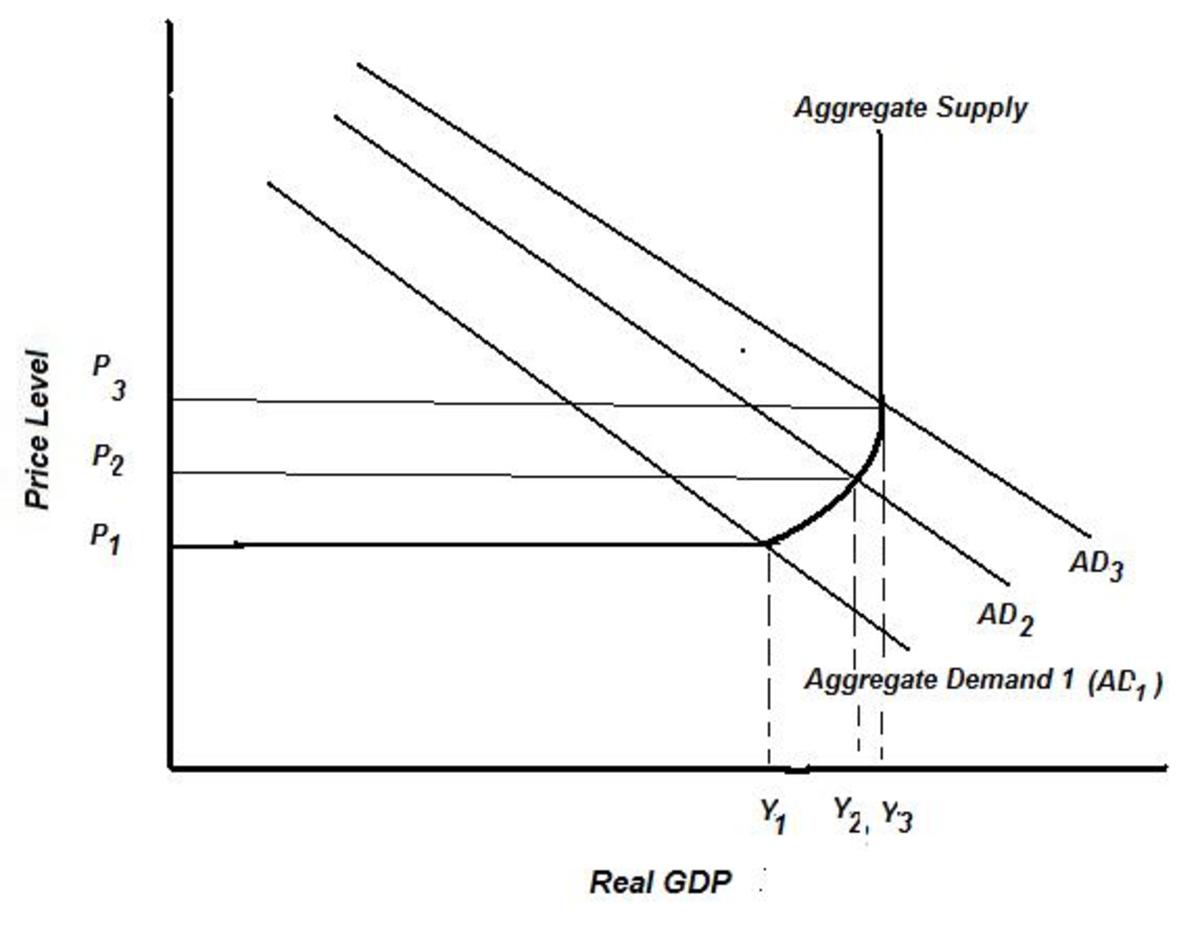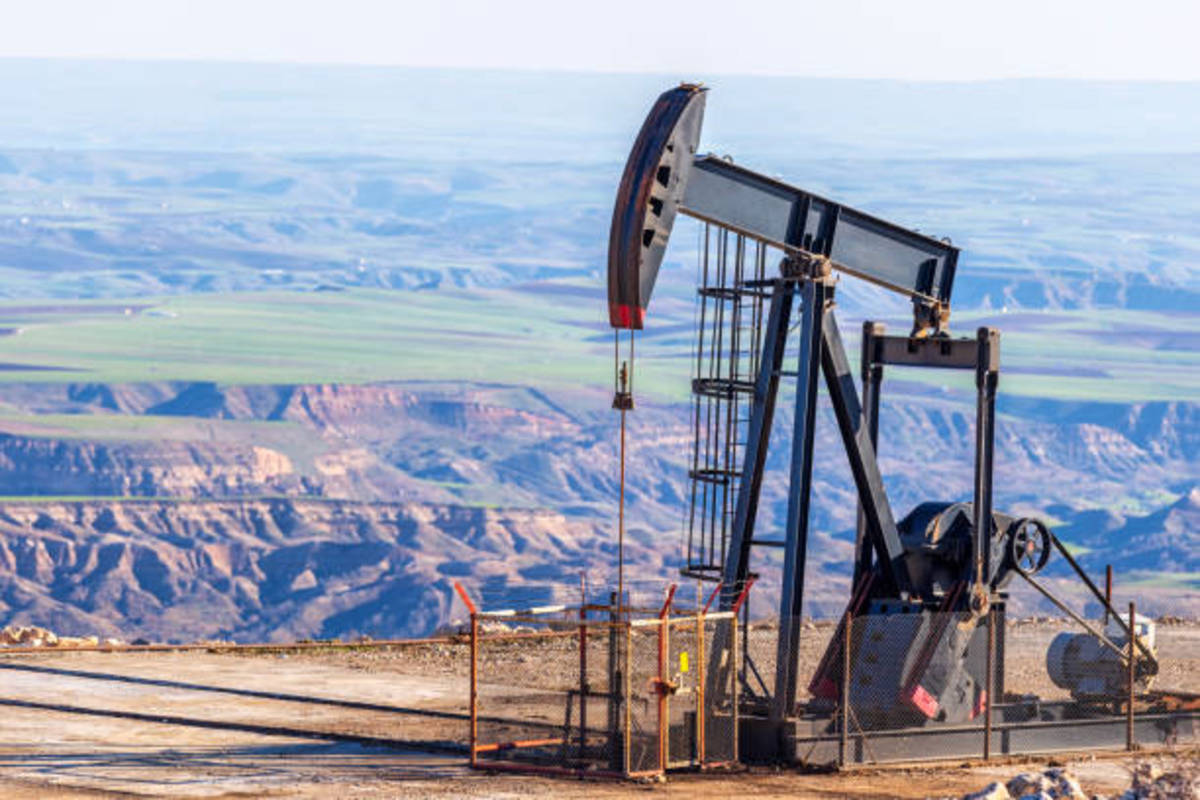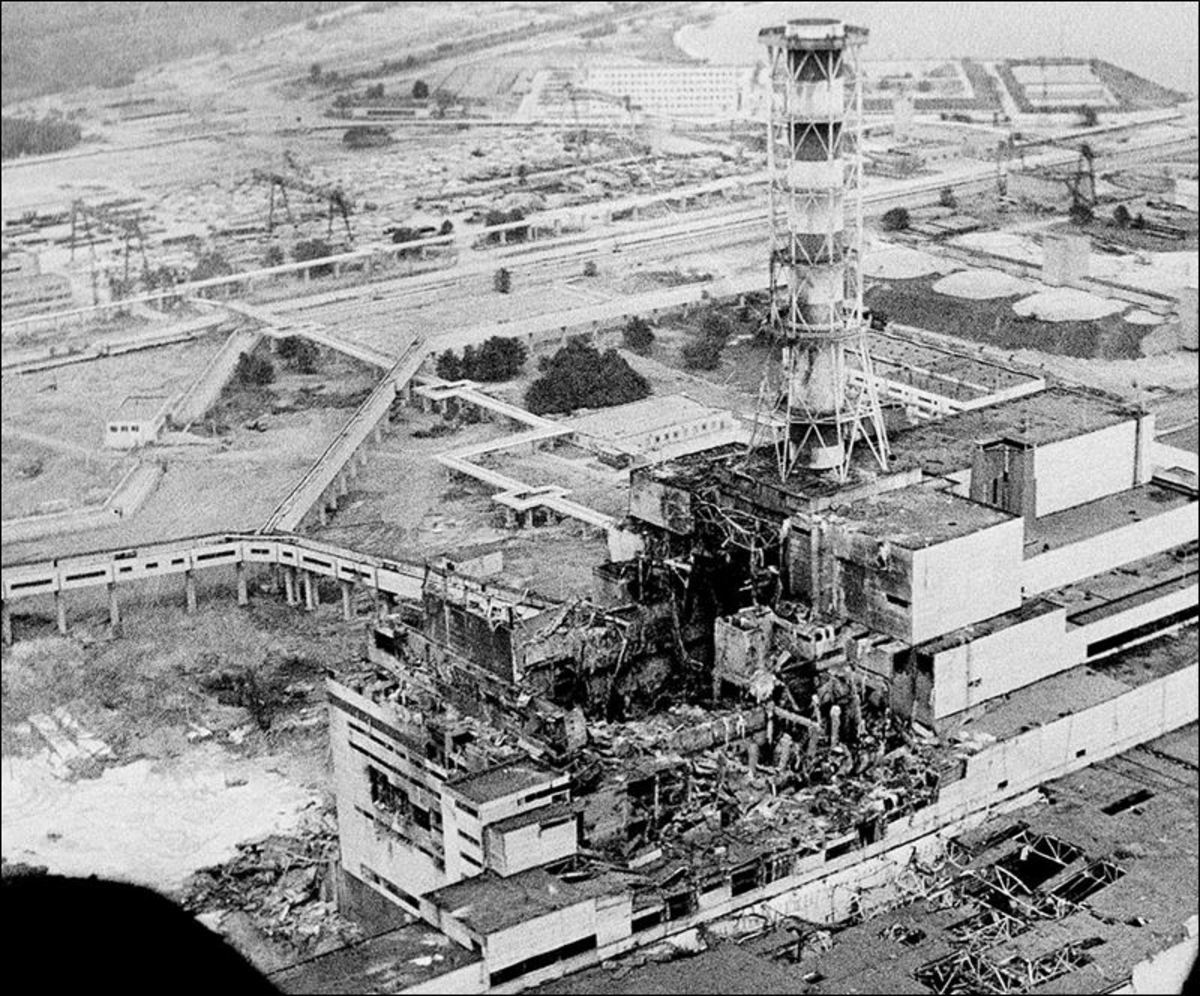Politics and Falling Oil Prices
Simply Lifting Ban on Offshore Drilling Was Enough to Start Pushing Price of Oil Down
Senator John McCain becomes convinced that we should expand oil drilling off our coasts and in the lower forty-eight states. President Bush overturns an executive order banning more offshore drilling. Senator John McCain pulls even with Senator Barack Obama in the polls. Oil prices have suddenly begun to drop.
The four sentences above are related and the first two can be called the cause with the two being the effect. In other words, both the recent abrupt rise in oil prices and the start of the decline in oil prices have both been driven more by politics and media hysteria than by the economics of the oil market.
Like others, I was hard pressed to explain the sudden rise in oil prices. OPEC hadn't make any moves to cut back on oil production and the situation in the Middle East was no more volatile than usual so, while not increasing, the supply of oil was not being cut. Demand for oil was increasing as a result of global economic growth but this was an on going process that could be expected to drive prices up, but steadily and over time, not the huge upward spikes we were seeing.
The first reasonable explanation came when I heard political consultant and commentator, Dick Morris, state that the rise was the result of speculators driving up the price of oil. His point made sense but I disagreed with his conclusion that speculators were the cause of the price rise and that government intervention was needed to stop the speculation. The rapid price rise at the gas pump was obviously being driven by the futures market for crude oil and not by existing demand and supply conditions.
How a Futures Market Works
Before continuing, let me explain how a futures market works. Futures markets are markets where one can buy and sell commodities for future delivery.
For example take the case of a farmer who must make his planting decisions in the spring but his product is not ready for sale until autumn. Assume that the cost to the farmer is the same to grow wheat or corn and his cost of production per bushel for each is $1.25. He checks prices and finds that wheat is currently selling for $1. 45 per bushel and corn $1.50. He can make a profit on either one but can make five cents more per bushel with corn so he decides to plant corn.
However, things can change between planting and harvest. The weather could be perfect for growing, thereby producing a bumper crop for everyone, which means that corn will be plentiful and the price per bushel drop.
In addition to the farmer, the food processing company which will be purchasing the harvest is also interested in how the growing season will turn out and what effect that will have on the price.
In their case a bumper crop and fall in the price per bushel would be great for their bottom line. However, there is also the possibility that bad weather, crop disease or insects could reduce the crop and drive prices up.
While this would be good for the farmers who are not affected by the bad weather, it will reduce the profit for the processing company.
Assuming the processing company feels it can make a profit on its products by purchasing corn at $1.50 per bushel, there is an opportunity for both the farmer and the processing company to strike a deal whereby the farmer agrees to sell his corn in the fall to the processing company for $1.50 per bushel.
By locking in the price in the spring, both the farmer and the processing company have assurance that they can proceed with their work and plans without worrying about outside factors that could cause the price of corn to change resulting in a windfall for one and a loss for the other. Here, both stand to win and neither will lose by locking in the price.
The situation described above is a futures market where buyers and sellers of products that require investments of time, money and labor in one period with the payoff in a later period and the possibility of price changes before the final payoff. A futures market gives both buyer and seller to lock in their profits at today's favorable prices.
However, there are usually not an equal amount of buyers and sellers for the produce. There is also the problem that the market may not be big enough to enable the buyers and sellers to find each other and negotiate the deals quickly and easily.
Enter the speculator, who is a person with no interest in producing the product or purchasing it for processing into another product. Speculators are essentially gamblers who make their living studying the market and the factors that influence the price and making an educated guess as to what the final price will be when the good (corn crop in this case) is ready for market.
The speculator then puts his money behind his theory and buys or sells contracts for the product.
If he buys, he is guessing that the price will rise so that he can sell his contract at the higher price before having to take delivery.
If he sells, he is guessing that the price will fall before the contract has to be honored and that he will be able to purchase a contract at a lower price to cancel out his contract to sell.
If the speculator's analysis is correct he stands to make a lot of money, if not he loses a lot of money. Either way, it is the speculators who make up the difference between the actual producers and buyers of the commodity and the total number of participants needed to make the futures market operate efficiently.
Rising World Demand Causes Oil Prices to Rise While Political Scaremongering Cause Oil Prices to Skyrocket
In the case of oil, politicians and media people have caused the price to rise with their cries of doom about oil supplies being depleted and their unfounded fears that global economic growth would cause the problem to accelerate as countries like China and India industrialized and increased their use of fossil fuels.
Given that a large portion of the world's oil production comes from OPEC controlled wells in the Middle East and, given that demand for oil is increasing, one can conclude that this Middle Eastern supply will eventually be depleted. Also, as demand for oil increases, other things being equal, the price will rise over time.
While the depleting of Middle Eastern oil supplies will cause the price of oil to rise, it will not result in a shortage of oil. The oil found in the Middle East, in addition to being abundant, is also close to the surface and is of a quality that can be easily distilled into gasoline and other petroleum products.
However, as the demand for Middle Eastern oil increases and their supply decreases, the rising prices will make oil production in other areas, where the oil is harder to get and of lower quality, profitable to drill and refine.
The real oil shortage problem is that the United States, which is the world's largest consumer of petroleum energy, has placed much of its oil reserves off limits to drilling. And we have a lot of oil. The Colorado shale oil deposits alone reportedly contain more oil than all of the Middle East. In addition to this we have oil deposits off shore on the Continental Shelf of our three coasts and the huge deposits in the Alaskan National Wildlife Refuge (ANWAR).
But environmental laws and past Presidential Executive Orders have made it illegal to drill for this oil. Meanwhile, politicians and media continue to scream that we are running out of oil and complain that America must become energy independent and stop sending so much of the American people's money to the Middle East.
At the same time politicians and media demand more laws and regulations making drilling for oil illegal in most of the U.S. As if this was not enough damage, the Federal Government also has all but banned increasing nuclear power, another proven source of abundant energy.
For all the talk about "energy independence" and the development of alternative fuels, which has been going on since the first so called "energy crisis" in the 1970s, the only alternative fuel that our politicians have come up with is ethanol which is really nothing more than a crude attempt by politicians to buy votes from farmers with taxpayer dollars.
Not only does it take a barrel of petroleum to produce a barrel of ethanol, thereby contributing zero new energy, we have also managed to create a food crisis in addition to not solving the so called "energy crisis".
Given the government's track record in developing alternative energy sources and their insistence on prohibiting the drilling of new oil wells combined with their insane desire to make America energy independent so as not to have to import foreign oil, it is no wonder that people think we have an energy crisis.
If we ban foreign oil, as many in Washington and the media are screaming for us to do, while refusing to drill our own oil we will have an energy shortage of real crisis proportions.
Free Market and Private Ownership of Oil Reserves Would Eliminate So Called "Energy Crisis"
In an election year with politicians and the media working overtime to generate fear in hopes of gaining votes and viewership, it is no wonder companies like oil refineries, airlines and other big users of petroleum energy started scrambling to lock in prices of oil for future delivery in an attempt to shield themselves from what could become a true shortage and skyrocketing prices.
Of course this panic led to huge demand for contracts in the oil futures market with the result that oil for future delivery was bid up to unreal levels.
When oil for delivery three, six and twelve months from now is selling for two to three dollars more than oil currently available on the market, it is easy to see why users of petroleum, including car driving consumers would scramble to buy up the current supplies thereby driving up the spot or current market price as well.
While a part of the increase in oil prices was due to increasing global demand for oil and part due to Middle Eastern and other foreign producers adjusting their prices upwards to offset declines in the U.S. dollar, much of the increase was due to major oil users bidding up the price in the futures market in response to fears that the government might actually follow through with some of their stupid ideas and cause a real crisis.
Even when it became clear to most that the high prices were a response to fears about future oil supplies, left wing politicians and their media allies kept insisting that removing drilling restrictions would not solve the problem as they claimed it would take ten years before oil would flow from the new wells.
However, as soon as President Bush took some baby steps and revoked the executive order limiting off shore drilling and Senator McCain decided that allowing more drilling both off shore and in the lower 48 states made sense, oil prices started to drop.
We didn't have to wait ten days, let alone ten years, for this to happen. The same thing happened when President Reagan removed the Carter imposed price controls on gasoline.
Everyone, warned that such a move would spark a huge increase in the price of gas making it too expensive for the poor. The price did make an abrupt jump but within days dropped down to a reasonable level. The gas lines and closed gas stations instantly became nothing more than a bad memory of the dreary life we had been forced to endure under the reign of President Jimmy Carter.
Markets are forward looking and the skyrocketing gas prices of the past months are an example of what happens when backward looking politicians are given control over markets.
Oil prices will probably continue to come down provided the government doesn't continue to meddle. If we truly want to solve this so called "energy crisis" we should get Washington out of the energy market (I don't recall seeing anywhere in the Constitution where any branch of the Federal Government is given responsibility for managing energy) completely.
Abolish the ethanol program and all of its subsidies and mandates and, along with this, do away with government subsidies, grants and other support of alternative energy development.
The market will not only perform this function, but do it prudently with investors money and not tax dollars.
Further, not only should the government open up all of the areas with known or potential oil reserves but should sell, rather than lease, the properties to oil companies and anyone else (including environment groups which, if they are really serious about keeping oil from being drilled could use their member's money to buy and keep the land undeveloped) who want to buy them.
We could even sell property rights to the seabed on the Continental Shelf that is under our jurisdiction. The water above would still be open to all but the land and its minerals below would be private land. Giving full property rights to the developers of these lands would remove any doubt about the owners being able to drill and pump the oil thereby ensuring our energy future.
19th Century Oil Shortage Solved Quickly by the Market
One only has to look back at the oil crisis of the 19th century - only then it wasn't called a crisis because no one expected the government to get involved and newspapers wouldn't have wasted newsprint calling for the government to lead us out of that crisis.
Of course the oil in question was whale oil which was used to provide lighting in homes and which was becoming increasingly scarce due to rising consumer demand for whale oil and declining supplies due to the whale population declining due to over harvesting.
The rising prices forced consumers to begin using whale oil more sparingly and encouraged entrepreneurs to seek newer and less expensive substitutes for whale oil.
Republicans Visit Alaska in Search of Oil
Thanks to the efforts of men like John D. Rockefeller who figured out how to substitute petroleum, which until then had little economic value, for whale oil in lighting their lamps.
Thanks also to Thomas Edison who figured out how to use electricity to produce light thereby providing consumers with better alternatives for lighting than whale oil.
It was these entrepreneurs, and not politicians and bureaucrats, who solved the nineteenth century whale oil shortage.
Rather than reducing their standard of living and giving up lamps and going back to candles as today's liberals would have advised as the only alternative, people saw the problem solved and experienced an improved standard of living in the process.
Thanks to the free market we stopped hunting whales, as there was no longer a profitable market for whale oil, and began using oil as a resource rather than throwing it away.
If today's politicians had been around at that time we probably would have seen a vast spending of tax dollars trying to find an alternative for whale oil.
Only they would not have looked at things like petroleum or electricity as these were small experimental industries with few workers and investors.
No, the politicians would have sought another fish or maritime creature to use as a substitute because their focus would not be on solving the consumer's need for lighting.
Instead the politicians would have sought to save the whaling industry which was large and well established and which could provide both votes and big time campaign contributions.









